The Ingredients in Shampoos and Conditioners and their Significance
I love doing articles like these. For one, they help provide information to the many, many people who read it. Second, they settle some very common questions. Third, the ingredient names are awfully long, and are really fun to say with your mouth full of cranberry cheesecake! (Momma’s cheesecake! Yippee!!!) :toothygrin:

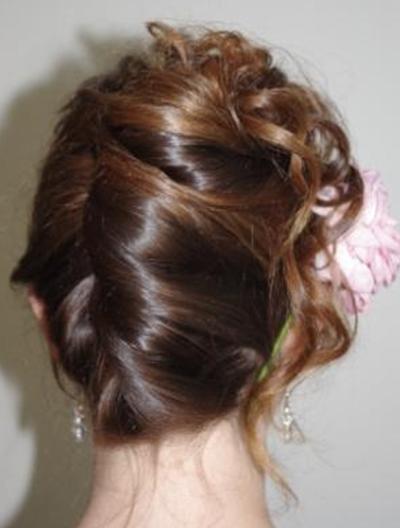
First, the very popular silicone debate – Bad or Good? :)? Keep reading to find out!
What are silicones?

According to trusty ol’ Wikipedia, Silicones are inert, synthetic compounds with a variety of forms and uses. Typically heat-resistant and rubber-like, they are used in sealants, adhesives, lubricants, medical applications (e.g., breast implants), cookware, and insulation.
They normally end in -cone, -conol or -xane, and are abundantly found in hair conditioners, and even in many shampoos.
Properties:
Typically not soluble in water, there are a few silicones that are soluble in water – if any silicone in the ingredients list has ‘PPG’ or ‘PEG’ in front of it, it is soluble in water. The rest of them, on the other hand, are insoluble in water. With regular usage, they build up on the hair and scalp, leading to dull, lifeless and tired hair. They create a layer on your hair that does not allow any product you use on it to touch the hair strands and actually work. Some common silicones of this kind are dimethicone, dimethiconol, cetyl dimethicone, cetearyl methicone, and stearyl dimethicone.
Then there are those silicones that do not lead to much build-up, but are still not water soluble, like amodimethicone, trimethylsilylamodimethicone, cyclomethicone and cyclopentasiloxane, stearoxy dimethicone, etc. The only silicones I’m personally comfortable using are: Anything with PPG or PEG in front of it. Also, lauryl methicone copolyol, dimethicone copolyol.
What Silicones do to Hair:
Silicones by themselves do not harm hair. They don’t corrode it. They don’t make it turn purple (even though that would be really, really cool!). In fact, they make hair easier to comb, making it shinier and smoother all the while. Sounds like fun? Well, it isn’t. Over time, silicones build up on the hair shaft and seal out moisture, leading to hair that is non-eceptive to any products you may use further.
One very interesting thing is that silicones take different time to build up on different people’s hair. For some people, they have to use a silicone hair product for a few months before they can see the effects of any build-up. For others, just 2-3 washes leads to hair being suffocated with the silicone. In order to remove the silicone from hair (to prevent any build-up from forming), we need to use cleansers that are detergents or surfactants containing sulphates like Sodium Lauryl/Laureth Sulphate (SLES), Ammonium Lauryl/Laureth Sulphate.
Sulphates:
As I said above, sulphates will remove silicones. Thus, you won’t have any nasty build-up from the silicones accumulating on your head. Sulphates are generally harsh – for instance, SLES, ALES, Ammonium or Sodium Xylenesulfonate, Sodium C14-16 (Olefin Sulfonate), Dioctyl Sodium Sulfosuccinate, Sodium Myreth Sulphate, Sodium Lauryl Sulfoacetate.
So, to solve this problem, what you need to do: As I have said so far, silicones cause build-up, which needs to be removed with sulphates. Sulphates, in turn, are harsh on hair and very drying – this leads to us feeling the need for MORE silicones, which need more sulphates, and so on. It’s a very vicious cycle, as you can see. Thus, most shampoos and conditioners are interdependent!
What I mainly want to do is avoid sulphates. If I do that and still continue to use silicone conditioners, I will have build-up. Thus, in order to avoid sulphates, I avoid silicones. I do use a sulphate shampoo once in a blue moon, but I am convinced that using sulphates almost never is way better than using them regularly to remove silicone build-up.
Always remember, silicones are mainly in conditioner, but sometimes in shampoo as well. Sulphates are in shampoo only. So, if you do like I do and not use a silicone conditioner, but if you use a shampoo (whether with or without sulphates) that contains silicones, there will be build-up caused. Thus, even your shampoo must be silicone-free.
Now, I know this sounds very confusing and pretty skewed. In order to avoid sulphates (my main goal), I avoid silicones at all costs, and use shampoo which is silicone free (but which contains sulphates) occasionally! 🙂
The key to avoiding sulphates is to avoid silicones at ALL COSTS. This is because it’s okay to use sulphates very rarely, than to use silicones and have build-up which will necessitate sulphates being used frequently. Our main aim is to escape from the drying effects of sulphates!
What are the Ingredients in Sulphate-Free Shampoos?
You might wonder what makes the shampoo clean your hair if it doesn’t contain sulphates. Well, there are other ingredients that are surfactants or detergents, which can clean hair effectively, without stripping it of moisture like sulphates do. For instance, Cocoamphodipropionate, Coco Betaine, Disodium Cocoamphodiacetate, Sodium Cocoyl Isethionate, Cocoamphoacetate, Lauroamphoacetate, etc.
Conditioner Can Clean Hair:
If you take a look at this article here, you will notice I’ve mentioned that I “co-wash.” That means, I don’t shampoo, but I use conditioner instead to CLEAN my hair. It is the conditioner itself combined with the mild scrubbing action that helps to loosen dirt and lift it away from the scalp. Again, no using silicone-conditioners.

Humectants:
Humectants, according to Wikipedia are hygroscopic substances. It is often a molecule with several hydrophilic groups, most often hydroxyl groups, but amines and carboxyl groups, sometimes esterified, can be encountered as well; the affinity to form hydrogen bonds with molecules of water is crucial here. Since hygroscopic substances absorb water from the air, they are frequently used in desiccation or for humidity buffering. They can be both bad, and good for our hair. It all depends on the amount of moisture in the air, aka humidity level. Humectants wick water to themselves, from either the air, or from your hair; i.e. from whichever one has more moisture. So, if your hair is drier and the air is humid, the humectants you’ve applied to your hair will draw moisture from the atmosphere, and will keep your hair moisturized, since it is, after all, applied on your hair!
However, if your hair pretty well moisturized and the air is dry outside, it will draw moisture away from your hair, leading to drier hair. You have to see what your hair needs. If you have a problem with “poofy” hair (hair that poofs outward into a big mess), you must not use humectants, since they will attract moisture from the air, onto your hair and we all know what happens to hair with moisture, it gets bigger and poofier. Don’t quite see it yet? Imagine flat-ironing your hair, and then going out on a humid day and sweating your face off. Now, do you get it? 😛
If your hair is limp and needs a bit of moisture for volume, then by all means, use humectants. Think of it this way; frizz and humectants are friends. You want frizz to go away, then you mustn’t use its friend – Mr. Humectant. If you want frizz, then by all means get Mr. Humectant along and have a ball! :toothygrin:
Examples of humectants are glycerine, propylene glycol, butylenes glycol, panthenol and that’s just off the top of my head.
Anti-Humectants:
These are exactly the opposite! They lock out moisture from a humid environment into the hair shaft, which means that hair is basically unaffected by humid weather. Also, they flatten, coat and seal the hair shaft. Sounds familiar? Yes, I said the exact same thing about silicones. Now I would love some anti-humectants in my hair. But, I do not want to use silicones.
![]()
Luckily, there are other ingredients that also are anti-humectant, eg. isopropyl palmitate, castor oil, shea butter, beeswax, coconut oil, sunflower oil, almond oil, olive oil etc. These I use occasionally in my hair products and routine. Now, assess the climate of the place you live in, and follow these three points given below for help. 🙂
• Basically, if the dew point is low, use less humectants (because your hair has more moisture than in the air), and moisturize your hair well (low dew point means a dry day with no much humidity in the air). If you use too much humectant, there is a chance that they will suck the moisture from your hair, leaving you with dry hair. Your best bet is to moisturize and then seal with some anti-humectant. Oils like those I mentioned above will help seal in moisture and protect hair from the dry air.
• If the dew point is moderate, use a little bit of humectant. There is a good amount of moisture in the atmosphere for your humectants to suck in and thus make your hair soft and bouncy (not too dry, not too humid either).
• When the dew point is high (very humid days), use anti-humectants to counter the effect of the moisture in the air, on your hair. If you use a humectant, it will draw all that moisture from the air and could make your hair poofy and frizz. However, if you use anti-humectants, (eg. a little bit of castor oil or almond oil mixed in with your leave-in conditioner), the hair is protected by them, and, as a bonus, anti-humectants (except for silicones) are easily washed away with a co-wash or a mild shampoo.
So yes, in conclusion, for extreme dew points (high or low), use anti-humectants, and on balanced days, use a little bit of humectant. Humectants will affect your hair mainly in your leave-in. If a product you’ll be rinsing out contains humectants, there is less chances of that affecting your hair. Also, the lower it is in the ingredients list means the less the product contain it.
Damaged Hair:
Damaged hair is porous and thus more vulnerable to climatic conditions, the torture you might subject it to by blow-drying and/or flat-ironing. Remember the Andre Walker System I wrote about a few weeks ago? Well, that’s only a generic classification. What actually determines if your hair is damaged (and thus what you need to use for it to regain its health) is the porosity of your hair.
If your hair is overly porous, it has an open cuticle, which means it needs more moisture, as it releases moisture easily and remains dry. (it absorbs moisture easily, because it is porous, but it also releases it just as easy!)
If your hair has low porosity, it tends to resist any product you apply to it, rather than absorb it into the hair shaft. According to Tiffany Anderson, “To determine your own hair’s porosity, grasp a hair strand firmly between your fingers. Slide the thumb and index finger of your other hand from end to scalp (opposite direction as for texture test). If your fingers “catch” going up the strand, or feel like they are ruffling up the hair strand, your hair is overly porous. If it is smooth, you have normal porosity. If your fingers move very fast up the hair strand and it feels exceptionally slick, you have low porosity.”
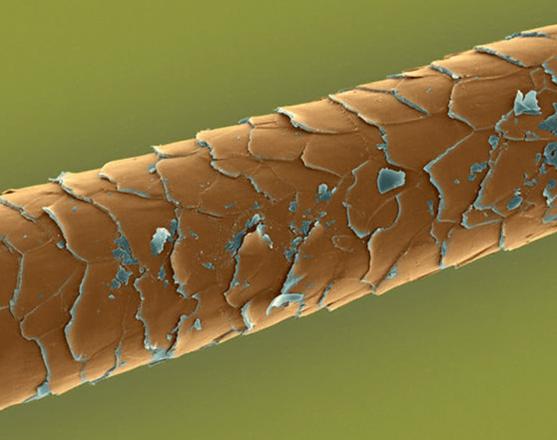
Thus, you hair could be even Type 4, but it may not be able to deal with heavy moisturization; or it could be Type 2, but might need heavy-duty moisturizing product! The hair classification is mainly to explain to people what your hair looks like, and not the state of its health.
Thus, if you have, say, Type 2a hair, and you use products that are light and not intensely moisturizing, but your hair feels coarse and dry, it is probable that you have overly porous hair, which is why your hair easily releases all the moisture in it.
In the same way, if you have Type 4b hair (for which heavy moisturization is normally recommended) but it is very fine and wispy, then you need light moisture, and not intense moisture.
Proteins:
My hair needs moisture. If I add more protein in my hair, it’ll turn brittle and will look like straw. Normal hair can withstand both, moisture addition and protein addition. Mine cannot withstand protein addition. My hair becomes rough and fragile if I use hair products with a lot of protein in them. However, my hair simply loves and thrives upon moisture!
If you find that you seem to be doing everything fine, but your hair is still dry and brittle, try cutting down on the protein treatments and products heavy on protein, and see if your hair becomes better. Examples of protein are amino acids, keratin, hydrolyzed silk protein, egg masks etc. Now, how do you tell if your hair needs protein or moisture? Check this link out.
Brands To Use:
I am saying this now, loud and clear. It does NOT matter what brand you use. You must scout for good ingredients, not for “good brands.” Brands aren’t what make a product do what it does, but the ingredients are. Any brand, if it has good ingredients and doesn’t have adverse effects on your hair, can be used. As long as you avoid the ingredients,you mustn’t use, and try using those that are most beneficial, you’re well on your way to a happy head of hair! Experimenting with products isn’t bad at all. Always try different products to find what’s best for your needs; for if you don’t do so, you’ll never know! There could be a miracle product that 98.3% of the population raves about, but unless you try it on your own hair and see what it does to YOUR hair, you cannot expect that if you were stranded on some forsaken island with a crate of that product, your hair will still live on and flourish! :haanji:

Help with ingredients:
There is a wonderful ingredients list on this site here. I don’t very much agree with some of Teri’s methods, but I must say this Ingredients Dictionary is indeed comprehensive and pretty accurately compiled.
Conditioners in India that are silicone-free:
1. Enliven:
This is what I’m currently using. I adore all variants of this conditioner – they work well, they moisturize my hair well, and they’re great for co-washing. Not locally made, but imported from England. I have already reviewed them on IMBB, Rs. 160 for 400 mL.
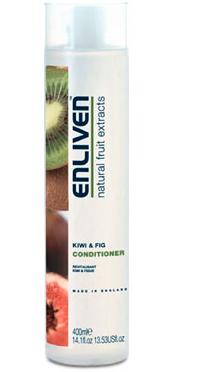
2. TBS Rainforest:
I have heard that this range is silicone free. I’ve never used this conditioner, though, because, for one, everytime I go to TBS, they somehow never have it in stock. 🙁 Another thing, it works out kind of expensive, considering I co-wash everyday, and thus end up using a LOT of conditioner every single day. I do not know where these are manufactured. Rs. 695 for 400 ml. This has been reviewed on IMBB too.
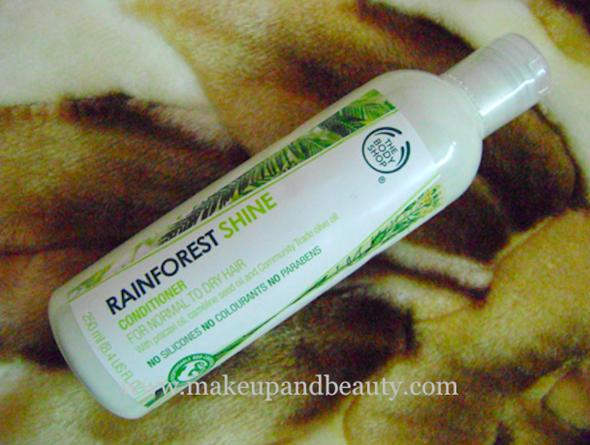
3. Revlon Flex:
I didn’t like this one. First, it smells weird. It’s not a bad smell, per se, and of course it is purely personal preference, but I detest the smell. It isn’t unbearable, but when I have the option to not use it, I definitely grab it! Second (and more important), it made my hair dry. This is probably due to the panthenol in it (remember I said that my hair doesn’t need protein, and too much protein can make hair dry and brittle?) I can’t find any other ingredient that I could blame for this, so it’s probably the protein. And yes, they do mention “Protein Power” or something on the pack, but I just had to try it out to see how it worked. :toothygrin: This is manufactured in Rudrapur, and it is Rs.140 for 592 mL. This can be ordered online also.
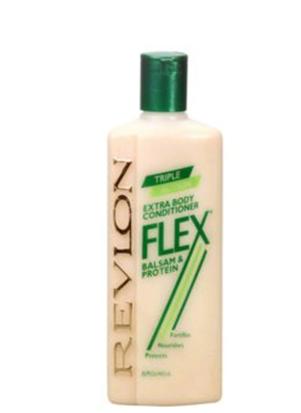
4. Alberto VO5:
This one is something I very badly want, but it is unfortunately unavailable as of now, in my city. Very effective and they have lovely variants! Not manufactured in India; imported from outside. Around Rs. 200.
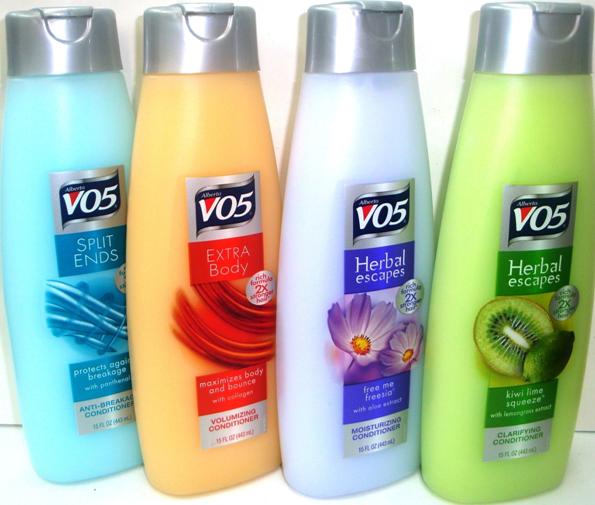
5. Suave:
Suave Naturals too has wonderful conditioners full of good stuff in them. Again, not available in my city. Not manufactured in India; imported from outside. I’ve never tried this, but many trusted sources say they’re good.
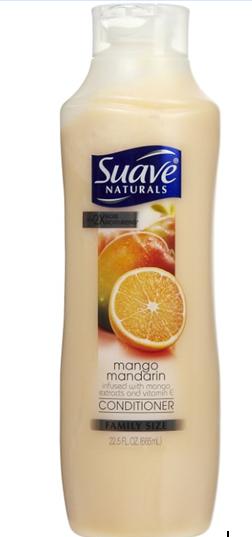
6. Matrix Biolage:
Thanks to Jabberwocky for suggesting this one! I poked around the internet, and yes, people say that this range is silicone-free. Unfortunately, I tried looking literally everywhere for this, but just couldn’t find it. I don’t know where this is manufactured, and I‘ve no idea of the price.
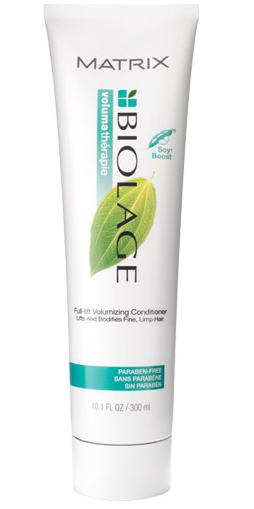
Note:
Expensive doesn’t mean good always and cheap needn’t mean bad. For instance, most of the conditioners above are very low priced, but they have good ingredients and work very well.
Final Thoughts:
When I say avoid silicones, you must follow that only if its build-up is causing you problems. By problems, I mean something you do not want your hair to do, like frizz up, or go limp on you. Always look at ingredients, and see how your hair is reacting to what you’re doing to it. If silicones work for you, by all means, use them. If they don’t, now you know why 🙂 There may be certain ingredients that people say are ‘safe’, and scientifically, they’re ‘good’ for your hair, but your hair doesn’t like them so much and frizzes out in defiance. Well, then, you must stop using those ingredients, and must only use those your hair is okay with.
If you use the right ingredients, do your hair the right way and expose your hair to minimal damage, your hair should be absolutely free of frizz, should be soft and healthy and shouldn’t be rough or coarse, AND it should feel the same way even without any product in there (with allowances for frizz that’s caused by curls separating from each other).
You will also find that as time goes by and your hair regains its health, you’ll be needing a lesser amount of conditioner.
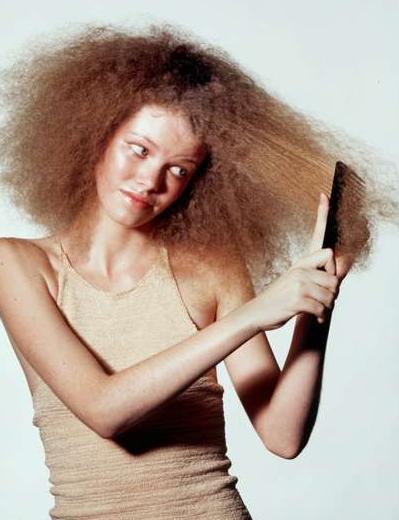
The science applies to all kinds of hair – whether straight or curly. However, since curly hair needs more moisture as compared to straighter hair, this routine of avoiding sulphates (and thus silicones) will help your hair immensely.
If what you’re doing already is working, go ahead. If it isn’t, maybe give this whole article a chance and see what your hair surprises you with!
Stay beautiful!
Love,
Samantha
Image Sources: 1, 2, 3, 4, 5, 6, 8, 9, 10, 11, 12.
Fab India Aloe Vera Protein Conditioner
Biotique Bio Watercress Fresh Nourishing Conditioner
L’Oreal Total Repair 5 Shampoo and Conditioner
Shampoo & Conditioner for Damaged Hair : Ask IMBB
Boots Seawood Conditioner
Avon Advance Techniques Moisture Sleek Smoothing Conditioner
The Body Shop Rainforest Shine Conditioner
Khadi Herbal Hair Conditioner with Vanilla and Honey
L’Oreal Nutri-Gloss Conditioner
Oriflame Hairx Daily Care Leave-in Conditioner
Sunsilk Hair Fall Solution Shampoo and Conditioner
Dove Intense Damage Therapy- Shampoo and Conditioner
Richfeel Scalp Cleanser Shampoo and Conditioner
Revlon Aqua Marine Hair Conditioner
Himalaya Hair Detangler and Conditioner
Schwarzkopf Repair Rescue Conditioner
Lush NEW! Shampoo Bar and American Cream Conditioner
The Body Shop Olive Glossing Shampoo and Conditioner
Kiehl’s Olive Fruit Oil Nourishing Shampoo + Conditioner
Dove Daily Shine Therapy with Advanced Serum Shampoo + Conditioner
Oriflame White Nettle & Papaya 2- in- 1 Anti-Dandruff Shampoo & Conditioner

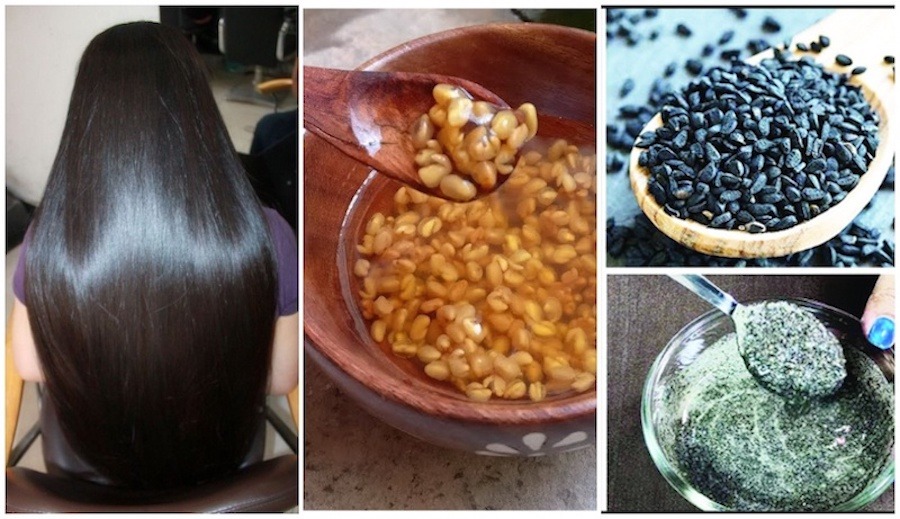
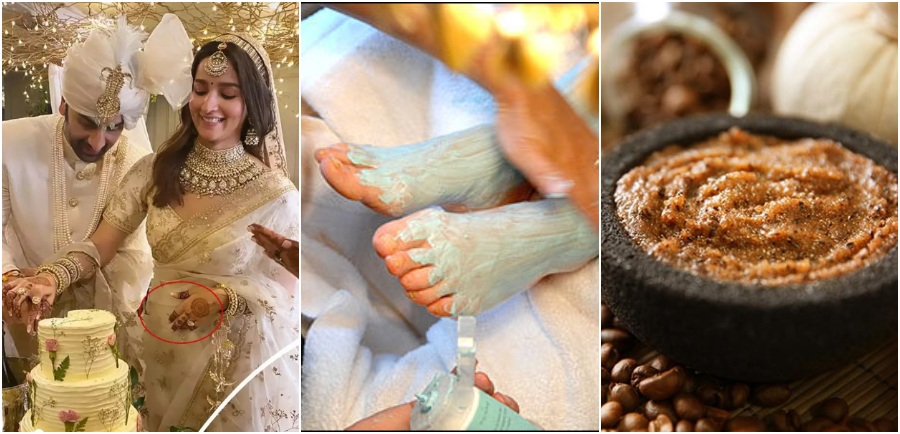
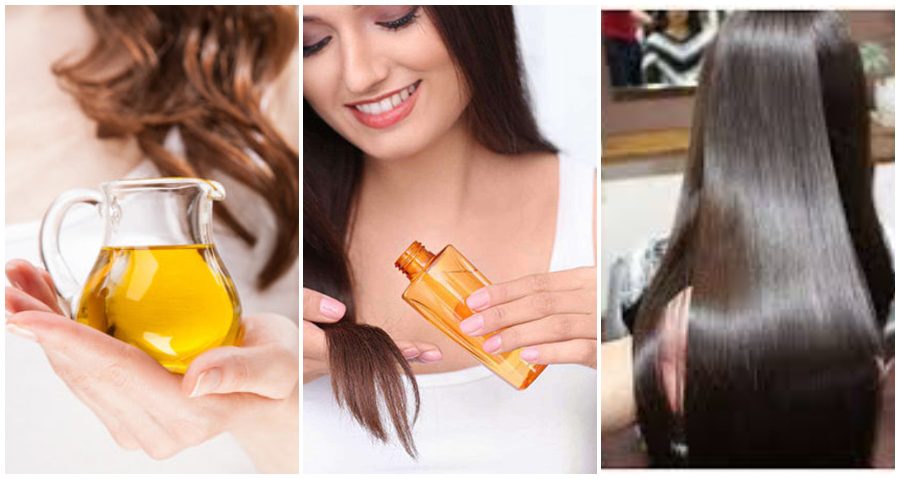

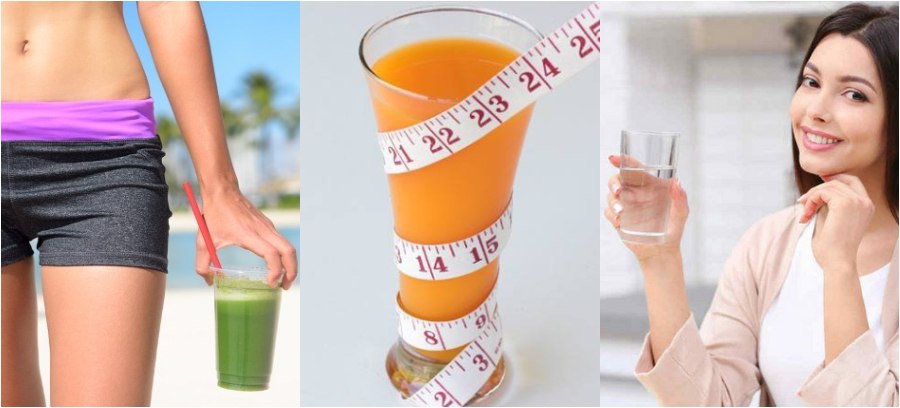
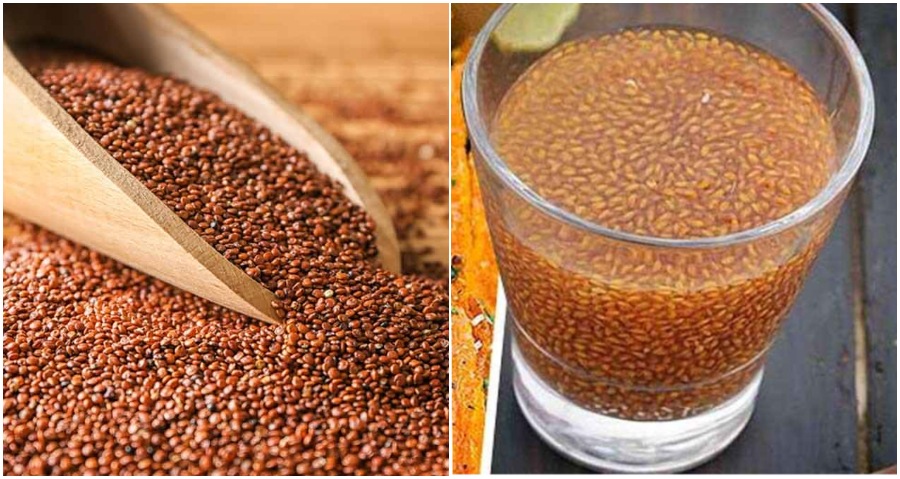

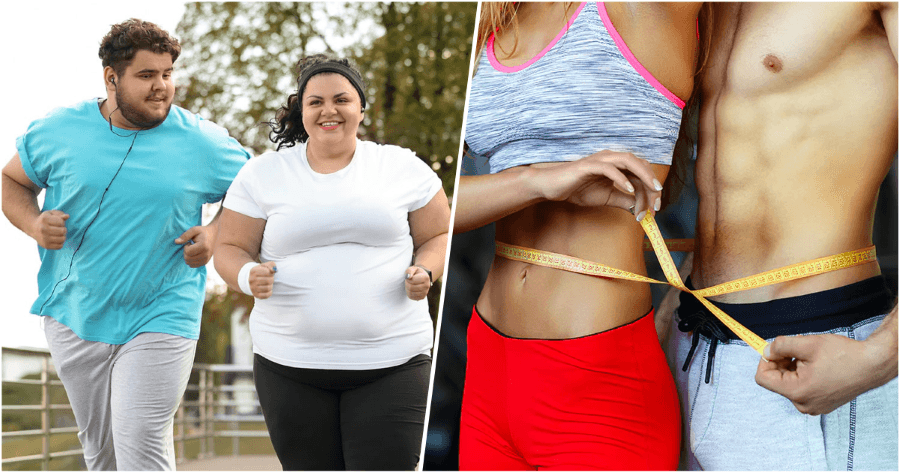
Nice elaborate article :thumbsup: …And it finally sums up all things that I browsed through….
curlynikki, tightlycurly, andrewalker. But somehow I am not getting courage to break my oil-shampoo-condition routine. How did u start with co-washing and how did that experience go in initial day?
Honestly, you’ve just got to start doing it.
First wash your hair with a clarifying sulfate shampoo one last time (to remove any build-up), and then onward, co-wash and don’t touch silicones.
I never had a bad experience. My hair felt much softer and nicer from the first co-wash itself! Many people say that their head feels like an oil-slick after starting to co-wash, for about 2 weeks or so. I never experienced any such thing, though I would have been pretty amazed if my head could actually produce all that oil! 😛
Great article Samantha…really informative… :waytogo:
Thanks, Richa! 🙂
I loved the article Samantha..very informative :thanks: :thanks:
Thank you so much, Ankita! :))
Samantha…..a very informative article :yes: :yes: :yes: :yes: :yes: :yes: :yes: :yes: and thanks for giving out the names of the products without silicones….will get them :woot: :woot: :woot: :woot:
Thank you Jomol! :yahoo: :yahoo:
Glad you found it helpful.
I love Vo5 range… i was using it for almost 2 years… Availability is a issue… but recently located them in Health & Glow…
Very Informative article…
Thanks, Deepa! :))
hope to see them in bglr as well… i hve also tried Vo5 from dollar store in commercial street..
Hi Samantha! Nice article :yes: :yes: :yes: …very informative. :thanks: :thanks: ..Biotique is also silicone free naa..i browsed thru the ingredient list of all Biotique conditioners.
Thanks, Nidhi! :))
I’m not too sure about Biotique… do they actually list all their ingredients?
Very informative article samantha .I had used enliven once but since it didnot stop my hairfall i had stopped using it ,didnt know it is silicon free will definitely try once more.
If it causes you to lose hair, it’s possible that some ingredient in it doesn’t quite agree with you. In that case, don’t use it! 🙂
However, since it is evident you had hairfall even before you began using it, you must look into other factors that could cause it.
Good writeup samantha :thumbsup: :thumbsup: I’ve used Sauve shampoos & I like them a lot :)) :)) :)) Haven’t tried their conditioner range, but now would :)) :))
Thanks, Ranjana! :))
This was something i was googling for last few days..thanx for compiling them and put it in a smart precise way !!! kudos!!! :yes: :yes: :yes: :yes: :yes:
Thanks for reading Sukanya! :))
Sam, another jewel post….love love and love. :jaiho: :jaiho: :jaiho: I will be more careful about picking up conditioners and shampoos….also I have started co-washing my hair with matrix biolage ultra hydrating conditioner, I must say….my hair is soft and clean and shows signs of life now…..thanks a ton bud :puchhi: :puchhi: :puchhi:
I’m so glad it worked for you!!!
Just make sure to gently scrub well to get rid of dirt on your scalp! :))
Thanks so much! :))
very informative article..:waytogo:
i try to remeber most of the things but get confusedd in the end.. but will definitely look up for this article whenevr i go to buy shampoos or conditioner nextt.. :specs: :specs:
Thanks, Poo! Glad it was helpful! :))
Super excellent artcile sam. Read it completely and would read it again. :clap: :clap: :clap: :clap: :clap: I am picking up matrix serum on my next visit to the salon. :yahoo: :yahoo: :yahoo: :yahoo: :yahoo: :yahoo:
Thanks, Rati!!! :))
well written….. :yahoo:
Methylisothiazolinone, or MIT is an ingredient used in many commercial shampoos. MIT and its closely related analog, chloromethylisothiazolinone or CMIT, affect the ability of young or developing neurons to grow processes (axons and dendrites) in tissue culture.
Some studies have shown MIT to be allergenic and cytotoxic, and this has led to some concern over its use.(wikipedia)
avoid MIT………. more harmful than SLS/SLES
ALS is 4/10 toxicity and SLS is 10/10
Thanks so much, Ife! :))
Most of the research on MIT is based on when it is present in the ingredients list along with Methylchloroisothiazolinone (CMIT). They are both preservatives.
From what I know, when MIT is used alone, it could irritate sensitive scalps. However, in personal care products, as long as it is not used in concentrations above 13% (which is normally the case), it is okay for use.
Also, I just looked this up, and found this – According to Teri, “The reason these two ingredients are so often found together is because when they are combined, the kill off nearly all microbes, and not much of them are needed to do so. They also work over a wide range of product pHs.”
Thanks for sharing this info, though :))
wonderfully written :yes: :yes: :yes: but sorry to say the revlon shampoo + conditioner ruined my hair :zombiekiller: :zombiekiller: :zombiekiller: as u have written that it made ur hair brittle….the same thing happened with me :yikes: my hair first went from lustrous black to brittle brown then there was hair fall and even hair graying!!!!!!! :spank: :spank: :spank: :spank: :spank: i really hate this shampoo so much that i had once thought of suing the company :spank: :spank: :spank: :spank: its a very rare thing to hate a product so much :waiting: :waiting: :waiting: but this was one such thing :waiting: :waiting: :waiting: i still cry for my hair graying that started with this particular shampoo :waaa: :waaa: :waaa: :waaa:
Thanks Kanika! :))
It is probably because your hair doesn’t need the protein. I know of a few people who have used this with good results. Although I dunno how it could turn your hair gray :)?
nobody gives concentrations of anything no……… 😉
is biotique safe….
Some of them do 😛
I don’t know about Biotique, sorry :((
much needed info! :thanks: :thanks: :thanks: today only i was wondering why my shampoo-which works perfectly fine in summers and rainy seasons- is drying out my hair in this winter weather..
hey can you suggest products for my hair type: type 2a, very oily, very non porous….my hair doesnt accept anything easily(like colour or straightening)….I use silicone based shampoo coz I like my hair to be straight and I have found using herbal, no-silicone shampoos to give me detestable cowlick….so basically I need products which keep my hair straight but doesnt cause buildup…..
Thanks, Oopsii!!! :))
I don;t have Type 2 hair myself, my hair is dry-ish, and with slightly higher than normal porosity. Basically, it is completely opposite of your hair. 😛
So I cannot really suggest specific products, since I don’t have similar hair. :)) Sorry :((
The reason your hair is resistant to color or straightening is because it’s non porous.
If you still want to use your silicone conditioners, go ahead. You can use either sulphate shampoos (which I don’t recommend) or a baking soda wash to remove the buildup.
You said you use silicone based SHAMPOO. If it is a shampoo, (and if it has silicones), I bet it has sulphates too. In that case, continue using your same shampoo.
Buildup won’t be caused unless you don’t remove it by using sulphates or clarifying ingredients like baking soda washes.
Since you use a sulphate shampoo (I’m assuming you do, since we are yet to come across a shampoo that has no sulphates but contains silicones), you don’t need to worry about the build-up.
hey thanks for such a detaiked answer! Yeah…i checked, my shampoo indeed has kinda everything….silicones, sulphates, glycerine , sodium salts and what not :stars: though I dont like the sound of sulphates harming my hair….
😀
Your shampoo has everything :toothygrin:
If you want to use silicones (because you like the way it makes your hair straight) but you don’t want to use sulphates, you’ll have to use baking soda washes and ACV rinses not more than once a week.
Cowlick haha reminds me of tintin 😛 yep samantha ,i am seriously inspored by your co-wash method – and i want to follow the procedure without any delay, but one clarification is necessary – is co-wash advisable for oily scalp,straight hair? guess not. but m ditching my silicone based conditioners right now.amazing review – and your hair`s gorgeous :pigtail: :pigtail:
I loved Tintin!!! :toothygrin:
Thanks, Arja! :)) Although the co-wash method isn’t mine, but I have made my own modifications to it that better suit my hair 🙂
Co-washing isn’t advisable if your scalp is oily because of your NATURAL oils. However, if your scalp is oily in defiance to you using too much harsh product (eg. shampoos) in your hair, co-washing is recommended.
Co-washing can be used for straight hair as well. It helps minimize strain on the hair, and helps it remain less damaged that it would be otherwise. However, if your hair becomes limp, lank and greasy with only co-washing, it is not recommended that you continue.
If your straight hair is prone to sticking up and out, then co-washing could help it stay down.
The only way to know is to try! 🙂
Brilliant article, Samantha! :woot: :woot: :woot: I was waiting for this one. I understand my hair and the products much better now. :happydance: By the way, I’ve started the co-wash system and besides added shine, my hair fall has reduced too. :preen: :pigtail:
I love the way you’ve explained the ingredients and the silicone-sulphate cycle too. :specs: I am going to scan the ingredients properly the next time I want to buy a new conditioner. I’m alternately using two different Enliven conditioners (fragrance variation 😀 ) and they’re perfect for now. :woot:
Thanks so much, Jabberwocky! :))
It’s always such a good feeling when we are actually armed with knowledge about our hair and what we gotta put into it! :))
It’s great that the co-wash system worked for you! :)) I’m doing the same thing :highfive: I’m using raspberry and kiwi/fig right now, purely fragrance variation! 😛
very good article, thanks Sam 🙂
Thanks, Praseena! :))
very informative one.. i was waiting for it.. Do u have any idea about fab india conditiioners?
Hey Vishakhi I own a Fabindia conditioner and it do contains silicon :spank: :spank:
its Dimethicone. :spank: :spank: O:)
Thanks! :))
As Poo said, Fabindia do use silicones in their conditioners. :((
Thanks, Poo :))
Wow. This is a really excellent peice. Loved it. Thanks so much 🙂
Thank you Bee! 🙂
Thank you so much 4 the elaborate and highly informative article, Samantha!
You’ve made the job of choosing a good shampoo and conditioner so easy! :yes:
Thanks, Noorie! 🙂 Glad it helped :))
OMG, I loved this article, its so informative! Thanks a ton Sam!!! :waytogo: :waytogo:
I would definitely try silicone-free products from now on! I always used to think that silicones are nice bcoz they make my hair all smooth n THANK GOD I read this article in time!
Thanks so much, Ramya! :))
Silicones aren’t bad, as I already said above.
As long as you remove the build-up regularly, they’re pretty okay. Infact, if you aren’t intent on giving up sulphate shampoos, then it’s no sense to give up silicones, since the build-up will be taken care of without any extra effort! :))
No, I think I will give up both sulphates n silicones. I quite agree that sulphates are damn drying, especially in winters…
Will switch to a sulphate free shampoo n silicone free conditioner now :))
Hi Samantha,this is an exceeeeeeellent article :waytogo: :thanks: So useful,just love love love it :jaiho: :jaiho:
U kno I tried ur recom,and did the co-wash with the TBS balance conditioner.But right after that till next two daYs I had severrely kitchy scalp.Now its settled down,but I wanted to kno does that happen every single time u co-wash or is it just a winter thing?Is the co-wash an option only for summers?.Pls help me i want to start co-wash and move away from shampoos completely.
Thanks, Pragnya! :))
I never experienced an itchy scalp when I co-wash, and I know many people who haven’t either.
So yeah, it doesn’t happen in summers or in winters. 😛
Did you harshly scrub your scalp? If so, it could have irritated it and made it itchy. You must be firm, but gentle. And use only the pads of your fingers; not your fingernails.
Also, if you did it right but it was still itchy, it could be your hair is having a bit of an adjustment period. It might take time to stabilize, possibly a week or two.
It could also be that your scalp cannot tolerate conditioner being massaged into it, silicone-free or not. If that’s the case, I’m afraid you can’t use this method! 🙂
Try using a few drops of tea tree oil mixed with any other oil (coconut or almond or olive, or sunflower) to help curb the itching.
Give this a few weeks. If it doesn’t improve, then you have to continue with your regular routine. 🙂
Great article Sam :thanks: for sharing this.
Thanks so much, Manorama! 🙂
Very informative article Samantha :thanks:
Thanks, Mamta! :))
fabbbb article samantha, i am bookmarking it :waytogo: :waytogo: :waytogo:
Thanks for sharing it wid us :thanks: :thanks: :thanks: :thanks:
Thanks so much, Nupur! :))
Very good one Sam. Really informative :mirror:
Thanks, Gurpreet! :))
Hey Nice article!!!! :waytogo: :waytogo:
Does anyone knw where I can get Suave products in chennai??
Thanks, Geet! :)) Sorry, I dunno :((
it’s a very informative article samantha!! thanks a ton for it!! :puchhi: :puchhi: after reading it, i have been checking out the ingredients of all my shampoos n conditioners and everything contains silicones!!! 😐 i see dimethicone mentioned in both shampoos as well as conditioners (even the leave in ones!) :yikes: :yikes:
gonna switch to enliven now.
Thanks, Tinkerbell! :))
Is it possible to get any of the above mentioned silicon free conditioners online?
I just mentioned above that Revlon Flex is available online 🙂
Hi samantha i got the mango and passionfruit variant of enliven today and m planning to conditioner wash my hair with it ,lets see how it goes ?:)
Hi Samantha,
Thank you so much for this article. I started co-washing, and after 3 washes, my hair is so much softer and silkier than earlier. I have wavy dry hair with a dry scalp. I can see that co-wash seems to help my dry scalp and seems to be getting rid of the slight dandruff that is seen sometimes due to my dry scalp. Currently I am using Herbal Essences – Hello Hydration conditioner. Is this good and can I continue to use it?
Hi, Love Co-Wash! 🙂
Thanks for reading this article!
I’m glad that co-washing worked for you. Herbal Essences – Hello Hydration does contain silicones, but is still okay to use for co-washing if you don’t see any hair fall etc.
However, you might notice times when your hair seems to be dull and the co-washing seems to have stopped working for you – this is the stage where build up of the silicones in your conditioner are clogging up your hair.
You can use a mild(er) sulfate shampoo or a baking soda rinse (preferred) to clarify (remove build up from) your scalp, and then continue with your co-washing with the Herbal Essences conditioner.
You can clarify whenever you feel the need to do so.
Hope this helps! 🙂
Very informative………..
hey dear plz help me with my hairs , earlier i used sunsilk black my hairs were fine then i used egg on hairs n somthing went wron n my hairs got rough n dead nw i use matrix biologue shampoo nw my hairs are lil better but what should i do to regain that silkyness n health 🙁
i just checked out with tresemme. it has almost all the ingredients which you mentioned as containing silicone and other harmful substances.
i am so scared. i just bought the product n the effects are also too gud 🙁
can you suggest me hair product that could help me because i have damage thin hair and unfortunately split ends